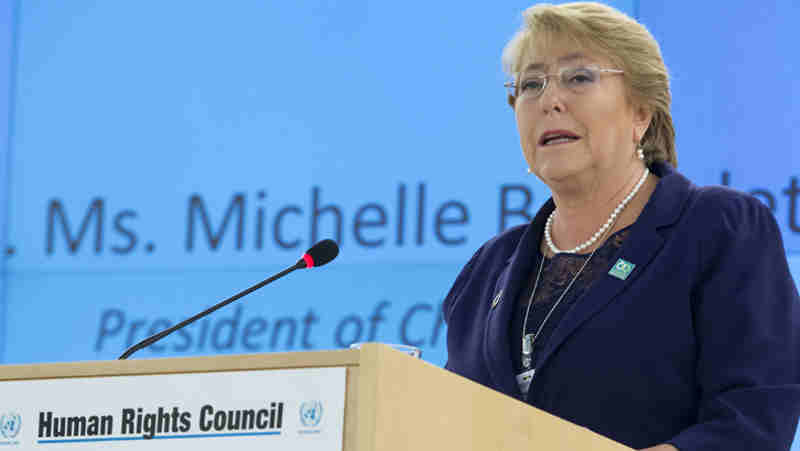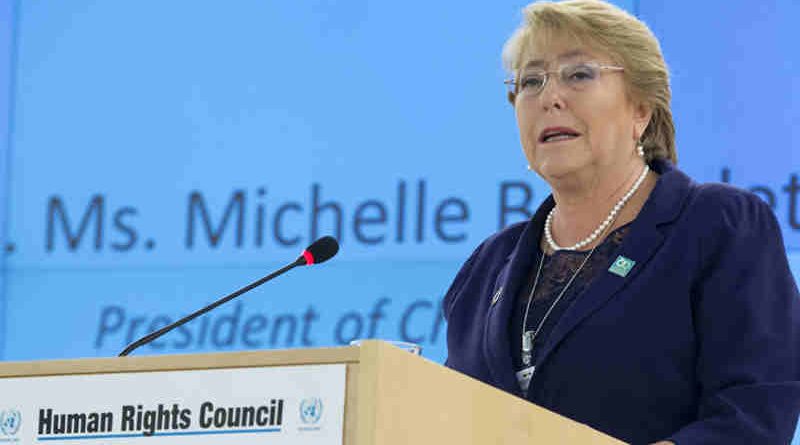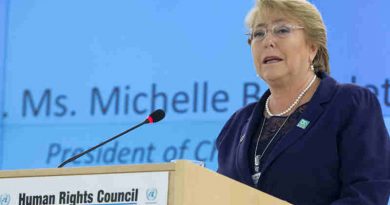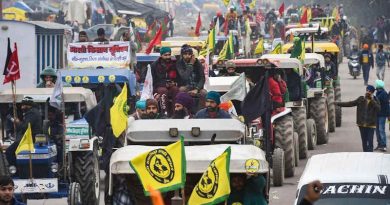Human Rights Situation “Alarming” in Kashmir: UN Experts

A year after India revoked the special status of Jammu and Kashmir (J&K), a group of UN human rights experts* has called on India and the international community to take urgent action to address the alarming human rights situation in the territory. “Urgent action is needed,” the experts said.
Since the Indian Parliament revoked the constitutionally mandated status of the state of J&K on 5 August 2019, “the human rights situation in J&K has been in free fall,” the experts said. “We are particularly concerned that during the Covid-19 pandemic, many protesters are still in detention and Internet restrictions remain in place.”
It has been almost a year since several UN experts wrote to the Government and publicly called on India to end the crackdown on freedom of expression, access to information, and peaceful protests which followed the 5 August 2019 announcement.
[ Islamic Nations Ask India to Stop Human Rights Abuses in Kashmir ]
The UN experts have also raised concerns with the Indian government about alleged arbitrary detention and torture and ill-treatment to which the Government recently replied, as well as the criminalization of journalists covering the situation and the detention and deteriorating health of a high profile human rights lawyer. “We have yet to receive any reply to three of the four letters,” the experts said.
The October 2019 closure of the Jammu and Kashmir State Human Rights Commission, which had been one of the few ways victims of human rights violations could seek remedy, is particularly concerning.
[ UN Human Rights Office Comments on Supreme Court Order on Kashmir ]
Furthermore, no information was provided to the public about what would happen to the ongoing cases the body had been investigating, including hundreds of suspected enforced disappearances dating from as far back as 1989. Allegations regarding thousands of unmarked and some mass graves sites have also not yet been properly investigated.
A year after #India revoked the special status of #JammuAndKashmir, UN experts call on India and the international community to take urgent action to address the alarming human rights situation in the territory. Learn more: https://t.co/uvGvOKGdcb pic.twitter.com/bdsLx0qax1
— UN Special Procedures (@UN_SPExperts) August 5, 2020
“Decades on, families are still waiting in anguish and now there is a stream of new alleged rights violations,” the experts said. “With no State Human Rights Commission and internet restrictions, the avenues for reporting are further reduced.”
[ Defunct UN Human Rights Treaty Bodies Demand Funds for Survival ]
In 2011, India extended an open invitation to Special Rapporteurs to visit, but has several requests pending. “We call on India to schedule pending visits as a matter of urgency, particularly of the experts dealing with torture and disappearances,” they said.
The experts: Agnès Callamard, Special Rapporteur on extrajudicial, summary or arbitrary executions; Ahmed Shaheed, Special Rapporteur on freedom of religion or belief; Clément Nyaletsossi Voule, Special Rapporteur on Rights to Freedom of Peaceful Assembly and of Association;Irene Khan, Special Rapporteur on the promotion and protection of the right to freedom of opinion and expression;Fabian Salvioli, Special Rapporteur on the promotion of truth, justice, reparation and guarantees of non-recurrence; Fionnuala D. Ní Aoláin, Special Rapporteur on the promotion and protection of human rights and fundamental freedoms while countering terrorism; Leigh Toomey (Chair-Rapporteur), Elina Steinerte (Vice-Chair), José Guevara Bermúdez, Seong-Phil Hong, Sètondji Adjovi, Working Group on Arbitrary Detention; Luciano Hazan (Chair), Tae-Ung Baik (Vice Chair), Bernard Duhaime, Houria Es-Slami, and Henrikas Mickevičius, Working Group on Enforced or Involuntary Disappearances; Mary Lawlor, Special Rapporteur on the situation of human rights defenders; Nils Melzer, Special Rapporteur on torture and other cruel, inhuman or degrading treatment or punishment.
The Special Rapporteurs and Working Groups are part of what is known as the Special Procedures of the Human Rights Council.





